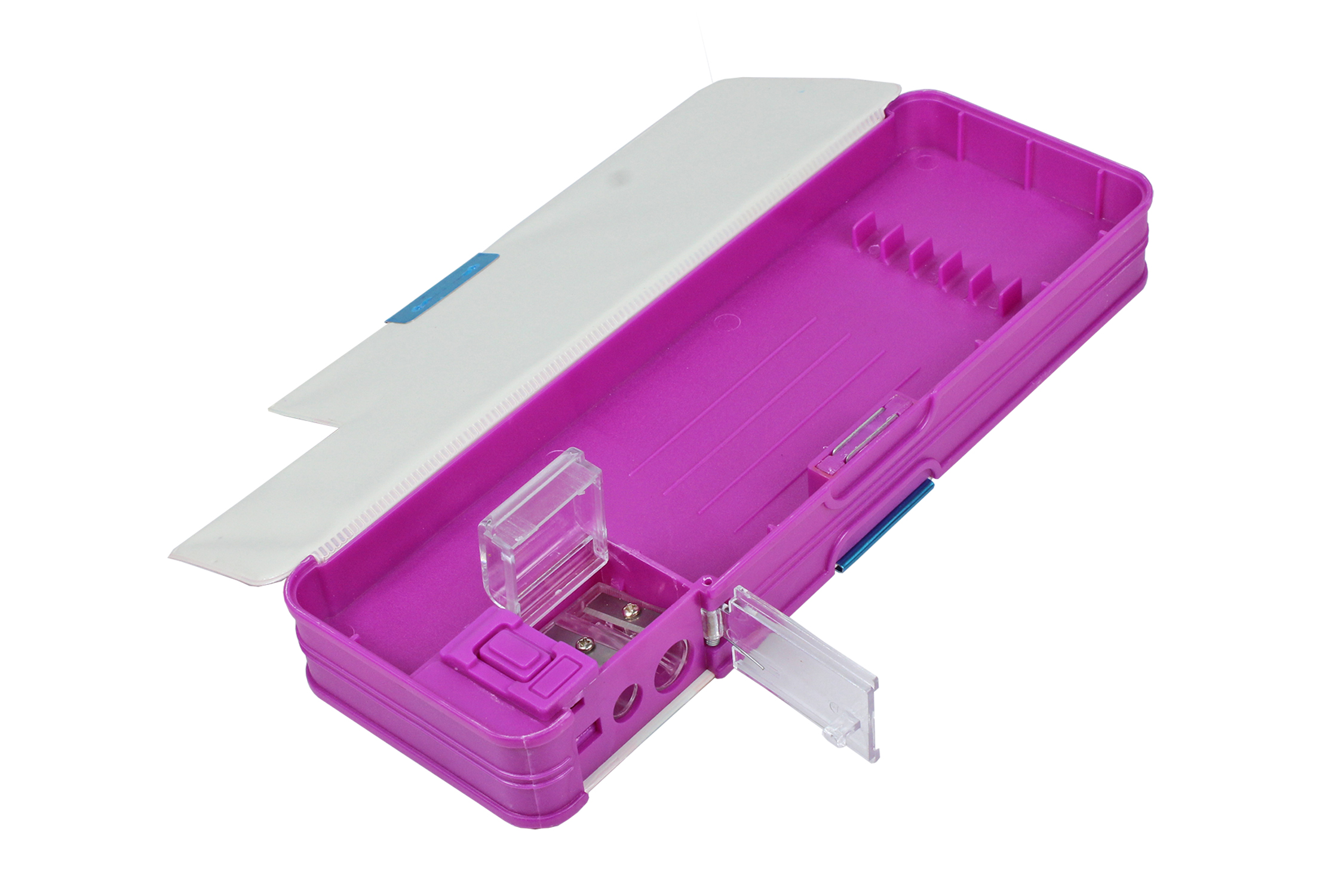
Possessive determiners (sometimes called possessive adjectives) instead modify a noun that comes after them.īecause possessive pronouns don’t allow you to specify what the possession in question is, you should use them only when this is already clear from the context.Possessive pronouns always stand on their own, not modifying a noun but replacing one.Possessive pronouns and possessive determiners are closely related and sometimes identical in spelling, but they play different grammatical roles.
#Purple pencil box for free
Use the best grammar checker available to check for common mistakes in your text.įix mistakes for free Possessive pronouns vs. I know you’re a bit scared of dogs, but I promise mine are really friendly. Examples: Singular and plural verbs with possessive pronounsHer favorite color is purple, but mine is green. Subject-verb agreementīecause of the rules of subject-verb agreement, any possessive pronoun that is used as the subject of a sentence can be followed by either a singular or a plural verb form depending on whether what it refers to (i.e., the thing possessed, not the possessor) is singular or plural. The building is about to collapse under its own weight. I like my car, but I wish my parents would let me drive theirs sometimes. Examples: Agreement with the antecedent Fabian expects that the prize will be his. The possessive pronoun “hers,” for example, is feminine (because Diana is female), third-person (because the speaker is not Diana and is not addressing her directly), and singular (because Diana is one person). The possessive pronoun (or determiner) must show correct pronoun-antecedent agreement in person, gender, and number. For example, in the statement “Diana says that the car is hers,” the antecedent of “hers” is “Diana,” the owner of the car.


The antecedent of a possessive pronoun is the person or thing that possesses what- or whomever is being referred to. She thought that no boss could be worse than hers. Examples: Possessives indicating relationshipsThis is my sister, Jane. “Possession” in the context of possessive pronouns and determiners can mean literal ownership of something (e.g., a book, a company), but it can also indicate more figurative kinds of possession, such as the possession of a relationship with someone or some place. Randall says that the pencil case is his.Randall says that the pencil case is Randall’s pencil case.Possessive pronouns are used in place of nouns to make statements about ownership more concisely, without needing to repeat the nouns representing the owner and the possession:

How are possessive pronouns used in sentences?


 0 kommentar(er)
0 kommentar(er)
